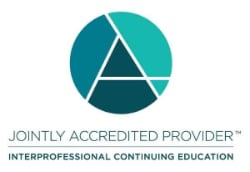Regenerative Design and Mental Health
Regenerative Design and Mental Health
Brought to You By
Dates and Times
-
-In-Person
Location
-
Northern Hemisphere E3/4Walt Disney World Dolphin Resort
Lake Buena Vista, FL 32830
The mental health crisis is a significant issue that has been recognized as a national concern for over 50 years. It affects a significant portion of the population and has been exacerbated by the recent pandemic. In response to this crisis, the design and construction industry has begun to shift its focus from sustainability to regenerative design, which takes into account the recovery of the natural environment, community mental health, social equity, human-centered design, and wellness. To address the mental health and well-being implications of regenerative design, we must consider neuroarchitecture and environmental psychology. This conference session will delve into these regenerative design principles and their impact on mental health and well-being, as well as the broader implications for design, the built environment, and the mental health crisis. We will review case studies spanning mental health facilities, schools, and mixed-use projects that have started implementing some of these principles and discuss their efficacy for the greater communities they serve. By paying greater attention to social, neurological, and ecological systems, the design and construction industry can strengthen its value to society as it addresses some of the most pressing issues of our time, including the current mental health crisis, ultimately improving care for those we serve.
- • Counselors
- • Addiction Counselors
- • Social Workers
- • Licensed Marriage and Family Therapists
- • Physicians
- • Nurses
- • Psychologists
At the end of this course, participants will be able to:
-
Define Regenerative Design and its implications for mental health facilities.
-
Describe 2 ways regenerative design promotes positive mental well-being and recovery of the natural environment.
-
Describe 2 ways neuroarchitecture and environmental psychology relate to regenerative design and the mental health crisis.
-
Explain the efficacy of regenerative design in case studies of mental health facilities on the continuum of care.
-
Identify 3 ways embracing social, neurological and ecological systems can address the mental health crisis and strengthen society.
-
Obradovich, N., Migliorini, R., Paulus, M. P., & Rahwan, I. (2018). Empirical evidence of mental health risks posed by climate change. Proceedings of the National Academy of Sciences of the United States of America, 115(43), 10953–10958. https://doi.org/10.1073/pnas.1801528115
-
Shepley, M. M., Watson, A., Pitts, F., Garrity, A., Spelman, E. V., Kelkar, J., & Fronsman, A. E. (2016). Mental and behavioral health environments: critical considerations for facility design. General Hospital Psychiatry, 42, 15–21. https://doi.org/10.1016/j.genhosppsych.2016.06.003
-
Vergunst, F., & Berry, H. (2021). Climate Change and Children’s Mental Health: A Developmental perspective. Clinical Psychological Science, 10(4), 767–785. https://doi.org/10.1177/21677026211040787
-
Won, E., & Kim, Y. K. (2016b). Stress, the autonomic nervous system, and the immune-kynurenine pathway in the etiology of depression. Current Neuropharmacology, 14(7), 665–673. https://doi.org/10.2174/1570159x14666151208113006
TPN.health has been approved by NBCC as an Approved Continuing Education Provider, ACEP No. 7267. Programs that do not qualify for NBCC credit are clearly identified. TPN.health is solely responsible for all aspects of the programs.
Course meets the qualifications for hours of continuing education credit for LPCCs as required by the California Board of Behavioral Sciences. TPN.health is approved by the California Association of Marriage and Family Therapists to sponsor continuing education for LPCCs. TPN.health maintains responsibility for this program/course and its content.
Trusted Provider Network, LLC is recognized by the New York State Education Department’s State Board for Mental Health Practitioners as an approved provider of continuing education for licensed mental health counselors. #MHC-0220.
This course has been approved by TPN.health, as a NAADAC Approved Education Provider, for educational credits. NAADAC Provider #198061, TPN.health is responsible for all aspects of the programming. Counselor Skill Group: Legal, Ethical and Professional Development.
TPN.health, #1766, is approved to offer social work continuing education by the Association of Social Work Boards (ASWB) Approved Continuing Education (ACE) program. Organizations, not individual courses, are approved as ACE providers. State and provincial regulatory boards have the final authority to determine whether an individual course may be accepted for continuing education credit. TPN.health maintains responsibility for this course. ACE provider approval period: 03/31/2022 – 03/31/2025. Social workers completing this course receive 1.5 continuing education credits.
Course meets the qualifications for hours of continuing education credit for LCSWs as required by the California Board of Behavioral Sciences. TPN.health is approved by the California Association of Marriage and Family Therapists to sponsor continuing education for LCSWs. TPN.health maintains responsibility for this program/course and its content.
Trusted Provider Network, LLC is recognized by the New York State Education Department’s State Board for Social Work as an approved provider of continuing education for licensed social workers #SW-0654.
Course meets the qualifications for hours of continuing education credit for LCSWs as required by the California Board of Behavioral Sciences. TPN.health is approved by the California Association of Marriage and Family Therapists to sponsor continuing education for LMFTs. TPN.health maintains responsibility for this program/course and its content.
Trusted Provider Network, LLC is recognized by the New York State Education Department’s State Board for Mental Health Practitioners as an approved provider of continuing education for licensed marriage and family therapists #MFT-0097.

In support of improving patient care, this activity has been planned and implemented by Amedco LLC and TPN.Health. Amedco LLC is jointly accredited by the Accreditation Council for Continuing Medical Education (ACCME), the Accreditation Council for Pharmacy Education (ACPE), and the American Nurses Credentialing Center (ANCC), to provide continuing education for the healthcare team.
Amedco Joint Accreditation #4008163.
Amedco LLC designates this live activity for a maximum of 1.5 AMA PRA Category 1 CreditsTM. Physicians should claim only the credit commensurate with the extent of their participation in the activity.

In support of improving patient care, this activity has been planned and implemented by Amedco LLC and TPN.Health. Amedco LLC is jointly accredited by the Accreditation Council for Continuing Medical Education (ACCME), the Accreditation Council for Pharmacy Education (ACPE), and the American Nurses Credentialing Center (ANCC), to provide continuing education for the healthcare team.
Amedco Joint Accreditation #4008163.
Amedco LLC designates this activity for a maximum of 1.5 ANCC contact hours.
TPN.health is approved by the American Psychological Association to sponsor continuing education for psychologists. TPN.health maintains responsibility for this program and its content.
-
Workshop Begins
-
Workshop Ends



